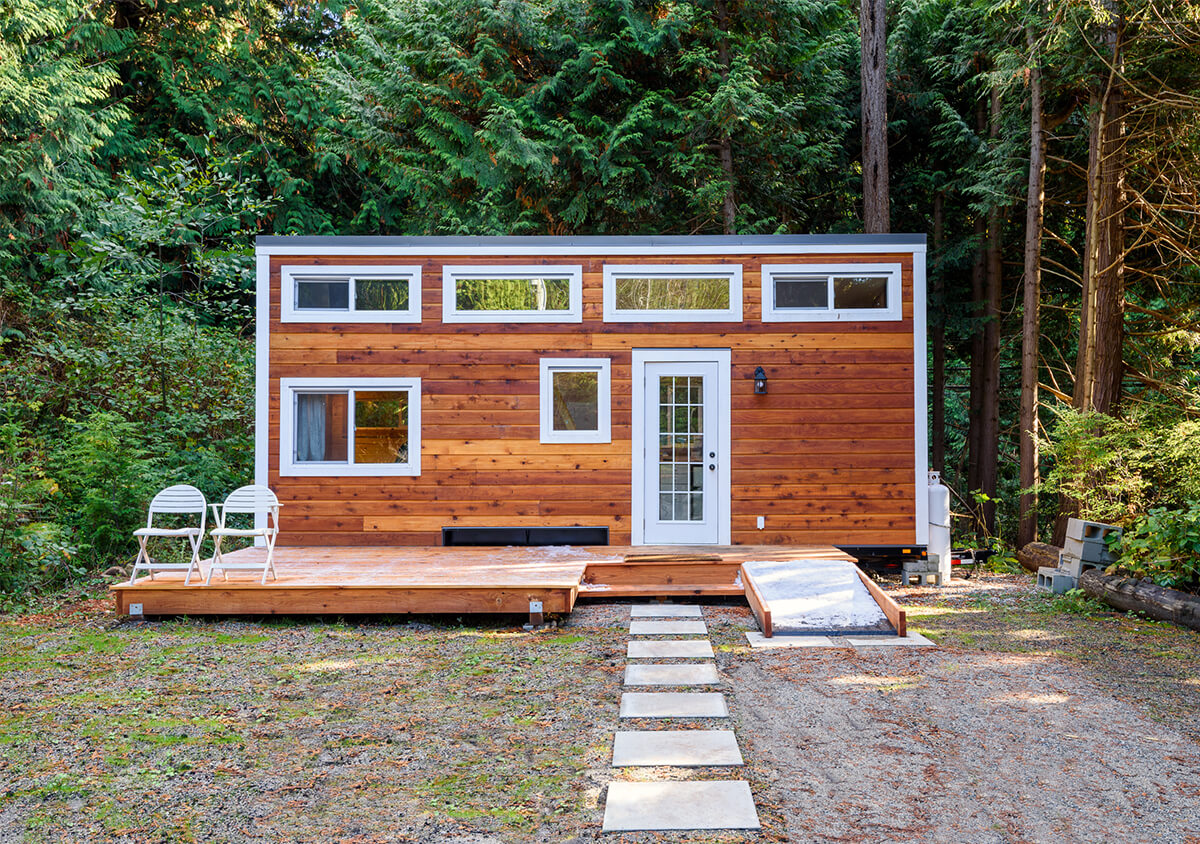Accessory dwelling unit (ADU) must be something you’ve heard of quite a lot these days. Are you also toying with the idea of improving a part of your property? How about building your own accessory dwelling unit (ADU)?
Accessory dwelling unit (ADU), also known as granny flat or in-law suite, is an additional living space within a property apart from the main house. The ADU is not exactly a new idea but is certainly seeing a good revival these days.
Think of an accessory or additional dwelling unit (ADU) as an adult playhouse. It’s within our parents’ backyard but our own space? That is what essentially is an ADU in the eyes of grown ups. It is an adult dwelling place separate or attached to the main house but a complete living space on its own.
The attractiveness of having ADUs is driven mainly by the fact that it’s compact and commands a lower price rent. As such, quite affordable housing options are made available to the public.
Accessory dwelling units also bring forth an invisible or gentle density, wherein the number of residents grows without necessarily building large structures. The increase in density brought about by the availability of ADUs reduces the costs associated with extending utilities to new dwelling units.
There are many reasons for building the additional dwelling unit. Some of these are:
- Additional space needed to use as a studio or private space
- Guest house
- Short or long-term lease for tenants
- Intimate space for elder family members to live on their own but nearby
In California, 3,917 accessory dwelling unit permits were issued in the first seven months of 2018 and 1,384 in the Los Angeles-Orange Counties, according to The OCR. The popularity of having additional dwelling units is undeniable and as such, the government of California passed the State of California Accessory Dwelling Unit Law: AB 2299 and SB 1069 which govern building an ADU.
There are different types of accessory dwelling units as defined by the City of Santa Ana Planning and Building Agency. For your future planning needs, these are the types of accessory dwelling units:
- Attached accessory dwelling unit: the additional dwelling unit is attached to the main house (internally or externally) and has its own living quarters including cooking and sanitation facilities
- Detached accessory dwelling unit: a housing unit that is completely separate from the main house and includes a bedroom, kitchen, bathroom, living area, and efficiency unit as defined under the California Health and Safety Code section 17958.1
ABCs of ADUs
With the increasing appeal of building ADUs, communities need certain requirements to fulfill to make sure their structures are in accordance to California laws. Keep some of the following in mind:
- Primarily, the lot must be zoned for single- or multi-family use only
- The ADU is not for sale individually or separately from the main house
- Located on the same property either as attached or detached dwelling
- The total floor area should not exceed 1200 square feet
- Floor area of the attached ADU should not be more than 50 per cent of the existing living area of the main dwelling unit
- Compliance with the local building code requirements especially with regard to detached dwelling units
To avoid any unnecessary expense and inconvenience, check first with your local city on what is allowed before embarking on a major construction for ADU. There may be differences when it comes to parking, setbacks, height, landscape, areas of coverage, and others depending on the city.
Benefits of having ADUs
Creating something out of an unused or empty space is always a good thing. Granted that you are qualified to build an accessory dwelling unit as set out by the law, here are some possible gains for you or the community from building an ADU:
- Additional local housing supply especially in areas where rent is astronomical
- Reduce property development pressures and somehow preserve neighborhood character
- Denser communities also allow for less carbon footprint
- Rental income for homeowners
- Low-cost housing for adult children who are not yet able to afford high rental rates in particular areas
- Increase property value
- Expanding livable space
Potential Drawbacks
Your property’s development is a good thing for you and your family. However, a few snags in building an additional dwelling unit may arise, such as:
- Neighbors complaining of “strangers” in the community
- Possible rise in crimes or vandalism
- Higher maintenance cost of the property
- Increase in tax payments
- Restrictions on sale of property
- Decrease or even loss of usable space within the property
Cost of Building ADU
Having studied your options, you may still come to a conclusion that building an additional dwelling unit in your property is the best option. Typically, an ADU could hover in the area of $45,000 to $100,000 depending on the scale of your construction – whether attached or detached ADU.
Building an ADU could be a major investment and so finding the right partner in terms of financing and great contractors is a must. There are financing options available like home improvement loans, unsecured personal loans, and others that could depend on the equity of your home or income.
Depending on your family or financial goals, building an additional dwelling unit’s long-term benefits may outweigh the initial heavy cost. It may be more cost-effective in the long run to provide a private home to an elderly family member or the potential of rental income to boost your coffers.
Once settled on the source of funds, it is equally important to find the right partner in building your ADU. In Orange County, it is but proper to choose a contractor that has an impeccable track record in delivering projects on time.
The General Contractor:
There are many designs that you could think of for your ADU but there’s only so much you can do if you don’t choose the right contractor. An experienced general contractor in Orange County can do these additions constructed in the least time possible, with the least discomfort or inconvenience to your family and neighbors.
Greater Pacific Construction in Orange County is of great reputation and experienced general contractors. Currently, they have quite impressive portfolio of Home Renovation and Home Remodeling projects completed successfully and to the utmost satisfaction of their clients in Orange County.




